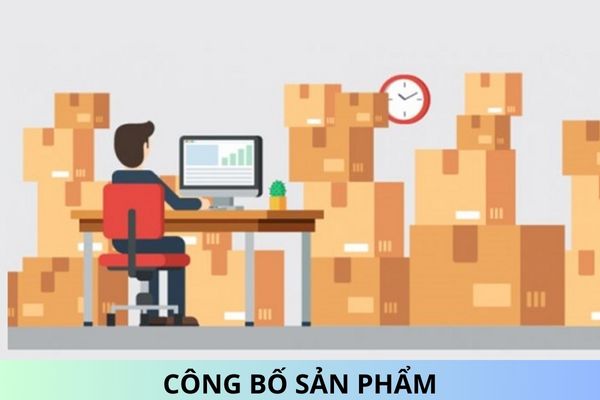Ministry of Industry and Trade to request Temu E-commerce Platform to comply with Vietnamese Law
Ministry of Industry and Trade to request Temu E-commerce Platform to comply with Vietnamese Law
On October 26, 2024, the Ministry of Industry and Trade of Vietnam issued Official Dispatch 8598/BCT-TMDT 2024 to strengthen state management of e-commerce in Vietnam.
Recently, cross-border e-commerce platforms like Temu, Shein, 1688... have engaged in business activities in Vietnam but have not registered their operations with the Ministry of Industry and Trade. This has attracted significant attention from consumers in Vietnam and become a hot topic in various media outlets. To enhance the effectiveness and efficiency of law enforcement, the Ministry of Industry and Trade requires the heads of units to urgently implement the following tasks:
- The Department of E-commerce and Digital Economy takes the lead, in cooperation with relevant agencies and units
- Strengthen communication and guide consumers to be cautious when shopping online on cross-border e-commerce platforms in general and platforms such as Temu, Shein, 1688... in particular. Especially, absolutely do not engage in transactions with platforms not yet confirmed to be registered by the Ministry of Industry and Trade at the E-commerce activity management information portal. Implementation time: within October 2024.
- Advise the Ministry's leaders to report to the Prime Minister of the Government of Vietnam, directing the Ministry of Finance to study solutions for monitoring and managing imported goods circulating through e-commerce platforms that do not comply with Vietnamese law regulations. Implementation time: within October 2024.
- Proactively contact the legal team of Temu to require compliance with the current laws of Vietnam, if necessary, may cooperate with the Ministry of Information and Communications for appropriate technical blocking solutions. Implementation time: within October 2024.
[...]
The Department of E-commerce and Digital Economy takes the lead, in cooperation with relevant agencies and units, proactively contact the legal team of Temu to require compliance with the current laws of Vietnam, if necessary, may cooperate with the Ministry of Information and Communications for appropriate technical blocking solutions. Implementation time: within October 2024.
Additionally, strengthen communication and guide consumers to be cautious when shopping online on cross-border e-commerce platforms in general and platforms like Temu, Shein, 1688... in particular.
Especially, absolutely do not engage in transactions with platforms not yet confirmed to be registered by the Ministry of Industry and Trade at the E-commerce activity management information portal. Implementation time: within October 2024.

Ministry of Industry and Trade to request Temu E-commerce Platform to comply with Vietnamese Law (Internet image)
Who are the subjects participating in e-commerce activities in Vietnam?
Based on Article 24 of Decree 52/2023/ND-CP amended by Clause 6, Article 1 of Decree 85/2021/ND-CP, the subjects involved in e-commerce activities include:
- Merchants, organizations, individuals establishing e-commerce websites to serve the promotion, sale of goods, or provision of their services (owners of e-commerce sales websites).
- Merchants, organizations providing e-commerce services.
- Merchants, organizations, individuals using websites of merchants, organizations providing e-commerce services to serve the promotion, sale of goods, or provision of their services (sellers).
- Merchants, organizations, individuals purchasing goods or services on e-commerce sales websites and websites providing e-commerce services (customers).
- Merchants, organizations providing technical infrastructure, logistics services, and other support services for e-commerce activities.
- Merchants, organizations, individuals using other networked electronic devices to conduct commercial activities.
What are the principles of e-commerce activities in Vietnam?
Based on Article 26 of Decree 52/2013/ND-CP amended by Clause 8, Article 1 of Decree 85/2021/ND-CP, the principles of e-commerce activities are stipulated:
Article 26. Principles of e-commerce activities
- Principle of freedom and voluntary agreement in e-commerce transactions
Parties involved in e-commerce activities have the freedom to agree on terms that do not violate legal regulations to establish rights and obligations in transactions. This agreement serves as the basis for resolving disputes arising in the transaction process.
- Principle of determining the scope of business activities in e-commerce
If merchants, organizations, individuals conduct goods sales, service provision, and trade promotion on e-commerce websites without specifically stating the geographical limits of these activities, then such business activities are considered to be conducted nationwide.
[...]
Thus, e-commerce activities in Vietnam follow the principles:
[1] Principle of freedom and voluntary agreement in e-commerce transactions
[2] Principle of determining the scope of business activities in e-commerce
[3] Principle of determining obligations to protect consumer rights in e-commerce activities
[4] Principle of doing business in restricted or conditional goods and services, and in sectors requiring business investment conditions through e-commerce.
[5] Entities participating in e-commerce activities must comply with legal regulations on information safety, cybersecurity, and other related laws.










